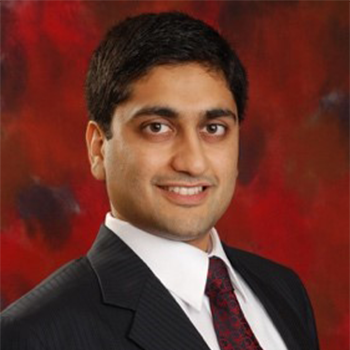
Workshop
Emerging Role of Smart Infrastructure and UAVs for Transportation Safety and Autonomy
This workshop takes place on Sunday, June 2, 2024, as part of the IEEE IV Symposium 2024.
Abstract
Surface transportation is changing rapidly. The rapid emergence of recent technologies and their intersection with transportation research has opened new avenues for studies. Smart traffic infrastructures and unmanned aerial vehicles (UAVs) increasingly find their way into research to overcome critical challenges as part of the monitoring, surveillance, and reference measurement system. Intelligent and connected infrastructures are being rolled out for this purpose on proving grounds and test areas in the public domain. In parallel, UAVs equipped with advanced sensing techniques can aid in the performance of transportation infrastructure and safety. They can capture key behaviors of multimodal traffic, infrastructure health, and traffic incidents with the capacity to communicate with the infrastructure system. This workshop, therefore, aims to bring together experts from relevant fields across the globe to share and discuss the current state of play.
Objective and Scope
The Workshop focuses on two major aspects in the field of autonomous driving, smart infrastructure, and UAVs leading to a future of better connectivity, scene understanding, and enhanced safety:
- Application-driven assisted and automated driving: last mile transportation and delivery with shuttles, automated valet parking, protection of vulnerable road users
- Connected and autonomous mobility: explicit and implicit cooperation of autonomous vehicles, e.g., cooperative perception, cooperative localization, cooperative motion planning, remote driving, large-scale cooperation with traffic control, etc.
- Smart roadside infrastructure, traffic surveillance, and traffic incident management
- V2X Communication (IEEE802.11p, C-V2X, 5G, …)
- Proving grounds, test areas and real laboratories: application of autonomous fleets, testing, validation and verification of autonomous vehicles
- Smart Traffic control infrastructure and field applications
- New drone-based dataset
- Scene analysis and traffic modeling from aerial images using computer vision and advanced algorithms
- Perception, sensor fusion, and trajectory tracking using aerial images
- ADS applications and smart city integration with UAV
- Edge technology to facilitate real time efficient processing
- Infrastructure health assessments, including bridge and pavement using UAVs
Paper and expectations
- Papers submitted for the workshop will undergo the same review process as the conference papers and will be published in the same conference transcript.
- Presenters of submitted Workshop papers are expected to participate in person.
- Requirements for the submitted papers (number of pages, registration, …) can be found here.
- Enter the code “ApplicationOfIntelligentInfrastructure” during submission.
Do not forget the code “ApplicationOfIntelligentInfrastructure“!
Preliminary program
08:30 – 08:40 am
Introduction and Welcome
Organizers
08:40 – 09:05 am
Integrating Infrastructure-Assisted V2X Communication for Next-Generation Cooperative Autonomous Driving
Manabu Tsukada, University of Tokyo
09:05 – 09:30 am
Guest Speaker 2
Reginald Viray, VTTI
09:30 – 09:55 am
Guest Speaker 3
(speaker tbd)
09:55 – 10:05 am
10:05 – 10:30 am
Mitigating Vulnerable Road Users Occlusion Risk Via Collective Perception: An Empirical Analysis
Vincent Albert Wolff, Edmir Xhoxhi
10:30 – 10:55 am
The Good, the Sparse, and the Ugly: Investigating the Impact of Corrupted HD-Map Features on Ego-Vehicle Localization Lukas Bee
Thorsten Luettel, Mirko Maehlisch
10:55 – 11:20 am
Guest Speaker 4
Rahul Mangharam, University of Pennsylvania
11:20 – 11:50 am
Panel Discussion:
Role of Smart Intersection and UAVs in the future of transportation
11:50 – 12:00 am
Note: The workshop will be held in English
Main Contact
Marc René Zofka
Department Manager
Division: Intelligent Systems and Production Engineering
- +49 721 9654-366
- zofka@fzi.de
- Headquarters Karlsruhe
Organizers
Dr. Abhijit Sarkar
Virginia Tech Transportation Institute
Tobias Fleck
FZI Research Center for Information Technology
Prof Dr. J. Marius Zöllner
FZI Research Center for Information Technology, Karlsruhe Institute of Technology (KIT)
Dr. Mihai Kocsis
Heilbronn University of Applied Sciences
Prof. Dr. Raoul D. Zöllner
Heilbronn University of Applied Sciences
Dr. Florian A. Schiegg
Robert Bosch GmbH
Prof. Hong Wang
School of Vehicle and Mobility, Tsinghua University, China
Date
Time
Referenten
-
 Dr. Manabu TsukadaAssociate professor at the Graduate School of Information Science and Technology, University of Tokyo
Dr. Manabu TsukadaAssociate professor at the Graduate School of Information Science and Technology, University of TokyoDr. Manabu Tsukada is currently an associate professor at the Graduate School of Information Science and Technology, the University of Tokyo, Japan. He is also a designated associate professor at the Center for Embedded Computing Systems, Nagoya University, Japan. He received his B.S. and M.S degrees from Keio University, Japan, in 2005 and 2007 respectively. He worked in IMARA Team, Inria, France, during his Ph.D. course and obtained his Ph.D. degree from Centre de Robotique, Mines ParisTech, France, in 2011. During his pre and postdoc research stages, he has participated in a multitude of international projects in the networked ITS area, such as GeoNet, ITSSv6, SCORE@F, CVIS, Nautilus6, or ANEMONE. He served as a board member of the WIDE Project 2014-2022. His research interests are mobility support for the next-generation Internet (IPv6), Internet audio-visual media, and communications for intelligent vehicles.
-
 Rahul MangharamDirector of the Autoware Center of Excellence for Autonomous Driving, University of Pennsylvania
Rahul MangharamDirector of the Autoware Center of Excellence for Autonomous Driving, University of PennsylvaniaRahul builds safe autonomous systems at the intersection of formal methods, machine learning, and controls. He applies his work to safety-critical autonomous vehicles, urban air mobility, life-critical medical devices, and AI Co-designers for complex systems. He is the Penn Director for the Department of Transportation’s $20MM Safety21 National UTC [2023-2028], which focuses on technologies for safe and efficient movement of people and goods. Rahul is the Director of the Autoware Center of Excellence for Autonomous Driving, a consortium of 70+ companies and universities focused on open-source AV software for open-standards EV platforms.
Rahul received the 2016 US Presidential Early Career Award (PECASE) from President Obama for his work on Life-Critical Systems. He also received the 2016 Department of Energy’s CleanTech Prize (Regional), the 2014 IEEE Benjamin Franklin Key Award, 2013 NSF CAREER Award, 2012 Intel Early Faculty Career Award, and was selected by the National Academy of Engineering for the 2012 and 2017 US Frontiers of Engineering. He has won several ACM and IEEE best paper awards in Cyber-Physical Systems, controls, machine learning, and education. -
 Reginald VirayPrincipal investigator, Virginia Tech Transportation Institute
Reginald VirayPrincipal investigator, Virginia Tech Transportation InstituteReginald Viray has over 15 years of experience in the research, development, implementation, operation, maintenance, management, and commercialization of Intelligent Transportation System (ITS) solutions in both the public and private sectors. He has been involved in over 30 ITS projects in roles ranging from individual technical contributor to principal investigator across a variety of topics such as advanced driver assistance systems, automated vehicles, connected vehicles, connected infrastructure, cyber security, human factors, and smart cities. Reg obtained a B.S. in electrical engineering in 2008 and an M.S. in industrial and systems engineering in 2014, both from Virginia Tech.
The event is finished.
Related Events

